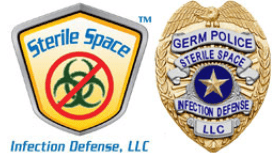Methicillin-resistant Staphylococcus aureus, or MRSA, is an infection linked to staph bacteria that’s resistant to antibiotics traditionally used to remedy these types of infections. The majority of MRSA infections happen in people who spend time in healthcare settings like hospitals, nursing homes, or dialysis centers. These types of infections are also called healthcare-associated MRSA (HA-MRSA). A person might get MRSA from medical procedures such as surgeries and intubation.
MRSA also exists outside of the health setting, among healthy people in the community. This type of MRSA, called community-associated MRSA (CA-MRSA), usually begins as a painful skin lesion, or boil. CA-MRSA spreads through skin-to-skin contact and may be more common in at-risk populations such as childcare workers, wrestlers, and those who live in crowded conditions.
What Are the Symptoms of MRSA?
MRSA generally presents as a skin staph infection and starts as painful, swollen red bumps that might first appear to be spider bites or pimples. You might notice that the area is warm to the touch, filled with drainage or pus, and is accompanied by a fever.
CA-MRSA and HA-MRSA can have differing symptoms. Here’s what you need to know about each:
CA-MRSA:
CA-MRSA is more likely to cause skin infections. Areas that have more body hair, such as the underarms and the back of the neck, are more prone to infection, as are areas that recently sustained a cut or scratch damaging the skin.
CA-MRSA usually has a yellow or white center with a central head, much like a pimple. It also may be surrounded by an area of redness, known as cellulitis. While some people may report a fever, you might not.
CA-MRSA lesions can turn into painful abscesses that necessitate surgical intervention. In some people, the bacteria remains confined to the skin, but in some cases it can burrow inside the body and cause life-threatening infections to the bones or blood stream.
HA-MRSA
Healthcare-associated MRSA is more likely to lead to serious complications, especially since patients who contract it are sick already. HA-MRSA is more likely to lead to urinary tract infections, pneumonia, and sepsis (blood infection). If you recently had surgery or spent time in the hospital and notice any of the following symptoms, tell your health care provider immediately:
- Headache
- Rash
- Muscle aches
- Fever
- Chills
- Fatigue
- Shortness of breath
- Chest pain
- Cough
You may be more likely to contract HA-MRSA if you were hospitalized within the past 3 months, regularly undergo dialysis, live in a nursing home, or have a weakened immune system.
MRSA infections are serious medical conditions that can lead to life-threatening complications without effective medical intervention or treatment. If you have any of the risk factors for CA-MRSA or HA-MRSA and notice any of the preceding symptoms, contact a health care provider as soon as possible These resistant infections will not go away on their own – they may require surgical draining or stronger medication to treat the infection before it gets worse. If you have any further questions, talk to your physician.
Additional Resources:
https://www.mayoclinic.org/diseases-conditions/mrsa/symptoms-causes/syc-20375336
https://www.healthline.com/health/mrsa#symptoms
https://www.cdc.gov/mrsa/pdf/MRSA_Broch_Parent.pdf
http://mrsasurvivors.org/about/
http://mrsasurvivors.org/ca-mrsa/
https://www.livestrong.com/article/182903-mrsa-symptoms-of-pneumonia/
https://www.wikihow.com/Identify-Symptoms-of-MRSA




